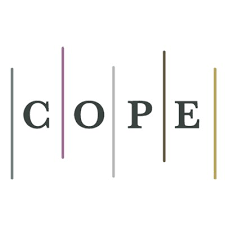The Relationship between Regulation and Consumer Protection in the Non-Banking Financial Sector: A South African Perspective
DOI:
https://doi.org/10.52547/ijimes.2.3.47DOR:
https://dorl.net/dor/20.1001.1.27832678.2022.2.3.4.5Keywords:
Consumer protection, financial crisis, financial regulation, economies, regulation, non-banking financial sectorAbstract
Purpose: Since the 2008/09 global financial crisis, financial regulation has become topical. As a result, governments of various economies have since implemented various regulatory reforms with the aim to avoid future crises and strengthen consumer protection. Academic literature indicates that scholars have divided opinions on the role of regulation to improve consumer protection. The aim of this study was to investigate the relationship between financial regulation and consumer protection. The study was narrowed down to focus on the South African non-banking financial sector.
Methodology: The study formulated one overall research question, which was supported by three sub-questions raised. A quantitative research methodology was employed and survey questionnaire administered to collect data.
Findings: The relationship between the two variables was tested statistically and finding depicted a negative correlation between the two variables and that strict financial regulation is not a predictor of improved consumer protection.
Originality/Value: This paper has been investigate the relationship between regulation and consumer protection in the non-banking financial sector in South African perspective.
Downloads
References
Anggriawan, T. P., Mahanani, A. E. E., Mumpuni, R., & Wijaya, A. D. (2022). Protection of Consumer Rights on Unlabeled Food Products. Nusantara Science and Technology Proceedings, 389-392.
Bardach, E., & Kagan, R. A. (2017). Going by the book: The problem of regulatory unreasonableness. Routledge.
Campbell, J. Y. (2016). Restoring rational choice: The challenge of consumer financial regulation. American Economic Review, 106(5), 1-30.
Botha, E., & Makina, D. (2011). Financial regulation and supervision: Theory and practice in South Africa. International Business & Economics Research Journal (IBER), 10(11), 27-36.
Pedrosa, Í., & Farhi, M. (2015). Macroeconomic theory in the aftermath of the crisis: mainstream and new Keynesianism. Nova Economia, 25, 237-260.
Donoghue, S., & De Klerk, H. M. (2009). The right to be heard and to be understood: a conceptual framework for consumer protection in emerging economies. International Journal of Consumer Studies, 33(4), 456-467.
Manning, S. (2022). From mainstream to niche: How value regimes shift in emerging economy upgrading. Research Policy, 51(6), 104532.
Grabosky, P. (2013). Beyond Responsive Regulation: The expanding role of non‐state actors in the regulatory process. Regulation & Governance, 7(1), 114-123.
Marti, E., & Scherer, A. G. (2016). Financial regulation and social welfare: The critical contribution of management theory. Academy of Management review, 41(2), 298-323.
Wood, J. T. (2017). Consumer protection: A case of successful regulation. Regulatory Theory, 633.
Zhu, T., & Xiao, J. J. (2022). Consumer financial education and risky financial asset holding in China. International Journal of Consumer Studies, 46(1), 56-74.
Tchana, F. T. (2012). The welfare cost of banking regulation. Economic modelling, 29(2), 217-232.
Oldani, C. (2018). Global financial regulatory reforms and sovereign’s exemption. Journal of Financial Regulation and Compliance.
Anong, S. T., & Kunovskaya, I. (2013). M‐finance and consumer redress for the unbanked in S outh A frica. International journal of consumer studies, 37(4), 453-464.
Cho, M., & Park, S. (2021). Financial Consumer Protection in the Era of Digital Transformation: A critical survey of literature and policy practices. KDI School of Pub Policy & Management Paper No. DP21-04.
Chibba, M. (2009). Financial inclusion, poverty reduction and the millennium development goals. The European Journal of Development Research, 21(2), 213-230.
Han, J.J. and Jang, W., 2013. Information asymmetry and the financial consumer protection policy. Asian Journal of Political Science, 21(3), pp.213-223. DOI: 10.1080/02185377.2013.864511
Howells, G., & Weatherill, S. (2017). Consumer protection law. Routledge.
Kontogeorga, G. N. (2017). Does (better) regulation really matter? Examining public financial management legislation in Greece. European journal of law and economics, 43(1), 153-166.
Kazemi, Z., Kazemikhasragh, A. and MohammadianAsiabar, B., (2012). Regulatory On Economics and Financial Crisis. Scholarly Journal of Business Aministration, Vol. 2(4),76-81
Widman, A. (2021). Protecting Consumer Protection: Filling the Federal Enforcement Gap. Buff. L. Rev., 69, 1157.
Liu, J., Kauffman, R. J., & Ma, D. (2015). Competition, cooperation, and regulation: Understanding the evolution of the mobile payments technology ecosystem. Electronic Commerce Research and Applications, 14(5), 372-391.
Decker, C. (2017). Concepts of the consumer in competition, regulatory, and consumer protection polices. Journal of competition law & economics, 13(1), 151-184.
Chauvet, L., & Jacolin, L. (2017). Financial inclusion, bank concentration, and firm performance. World Development, 97, 1-13.
Masciandaro, D., & Quintyn, M. (2016). The governance of financial supervision: recent developments. Journal of Economic Surveys, 30(5), 982-1006.
Jones, E., & Knaack, P. (2019). Global financial regulation: Shortcomings and reform options. Global Policy, 10(2), 193-206.
Beyers, F. J., De Freitas, A., Essel‐Mensah, K. A., Seymore, R., & Tsomocos, D. P. (2022). A computable general equilibrium model as a banking sector regulatory tool in South Africa. South African Journal of Economics, 90(1), 93-120.
Nurunnabi, M. (2015). The impact of cultural factors on the implementation of global accounting standards (IFRS) in a developing country. Advances in Accounting, 31(1), 136-149.
Kastner, L. (2014). ‘Much ado about nothing?’Transnational civil society, consumer protection and financial regulatory reform. Review of International Political Economy, 21(6), 1313-1345.
den Hertog, J. (2012). Economic theories of regulation. Chapters.
Hanson, S. G., Kashyap, A. K., & Stein, J. C. (2011). A macroprudential approach to financial regulation. Journal of economic Perspectives, 25(1), 3-28.
Voutilainen, R., & Koskinen, L. (2019). Megatrends in the insurance and financial sector. Leading Change in a Complex World: Transdisciplinary Perspectives.
Segatti, A., & Pons-Vignon, N. (2013). Stuck in stabilisation? South Africa's post-apartheid macro-economic policy between ideological conversion and technocratic capture. Review of African Political Economy, 40(138), 537-555.
Goodhart, C., Hartmann, P., Llewellyn, D. T., Rojas-Suarez, L., & Weisbrod, S. (2013). Financial regulation: Why, how and where now? Routledge. DOI: https://doi.org/10.4324/9780203350386.
Stiglitz, J. E. (2018). Competition and Consumer Protection in the 21st Century.
Ahmed, H., & Ibrahim, I. R. (2018). Financial consumer protection regime in Malaysia: Assessment of the legal and regulatory framework. Journal of Consumer Policy, 41(2), 159-175.
Moodley, N., Saimen, A., Zakhura, N., Motau, D., Setswe, G., Charalambous, S., & Chetty-Makkan, C. M. (2020). ‘They are inconveniencing us’-exploring how gaps in patient education and patient centred approaches interfere with TB treatment adherence: perspectives from patients and clinicians in the Free State Province, South Africa. BMC public health, 20(1), 1-10.
Motau, T. (2018). The great bank heist: Investigator’s report to the Prudential Authority’. South African Reserve Bank.
Skousen, M. (2016). The making of modern economics: the lives and ideas of the great thinkers. Routledge.
Casey, T. (2015). How macroprudential financial regulation can save neoliberalism. The British Journal of Politics and International Relations, 17(2), 351-370.
Posner, E. A., & Weyl, E. G. (2014). Benefit-cost paradigms in financial regulation. The Journal of Legal Studies, 43(S2), S1-S34.
Levine, R. (2012). The governance of financial regulation: reform lessons from the recent crisis. International Review of Finance, 12(1), 39-56. https://doi.org/10.1111/j.1468-2443.2011.01133.x.
Morgan, B. (2017). Social citizenship in the shadow of competition: the bureaucratic politics of regulatory justification. Routledge.
Linick, M. A. (2014). Measuring Competition: Inconsistent definitions, inconsistent results. Education Policy Analysis Archives, 22(16), n16.
Brezina, I., Pekár, J., Čičková, Z., & Reiff, M. (2016). Herfindahl–Hirschman index level of concentration values modification and analysis of their change. Central European journal of operations research, 24(1), 49-72.
Menezes, F. (2013). The microeconomics of corruption: The classical approach. In Larmour P. & Wolanin N. (Eds.), Corruption and Anti-Corruption (pp. 119-130). ANU Press. Retrieved from http://www.jstor.org/stable/j.ctt2tt19f.10
Dolata, U. (2017). Apple, Amazon, Google, Facebook, Microsoft: Market concentration-competition-innovation strategies (No. 2017-01). SOI Discussion Paper.
Jin, G. Z., & Wagman, L. (2021). Big data at the crossroads of antitrust and consumer protection. Information Economics and Policy, 54, 100865.
Grubb, M. D. (2015). Overconfident consumers in the marketplace. Journal of Economic Perspectives, 29(4), 9-36.
Xiao, J. J., & O'Neill, B. (2016). Consumer financial education and financial capability. International Journal of Consumer Studies, 40(6), 712-721.
Maluleke, R. (2019). Quarterly Labour Force Survey. Department of Statistics South Africa.
Published
How to Cite
Issue
Section
License
Copyright (c) 2022 Pumelele Dawedi, Kenneth Nwanua Ohei, Sam Lubbe

This work is licensed under a Creative Commons Attribution 4.0 International License.












